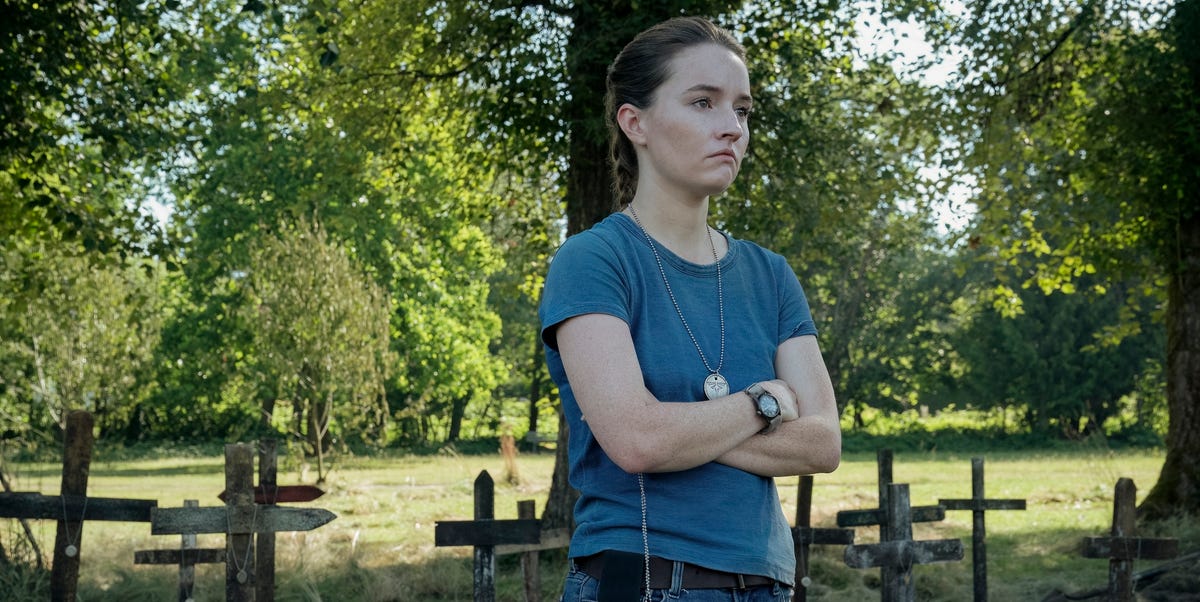Abby in The Last of Us Season 2: Explained – A Deeper Dive into the Controversial Character
The highly anticipated second season of HBO's The Last of Us is set to delve deeper into the complex and controversial character of Abby Anderson. While the game's depiction of Abby sparked significant debate, the showrunners have promised a nuanced portrayal that aims to build empathy and understanding for this multifaceted character. This article will explore what we know so far about Abby's role in Season 2, examining her motivations, relationships, and the potential impact her story will have on the narrative.
From Antagonist to Protagonist? Reframing Abby's Journey
In The Last of Us Part II, Abby is initially presented as the antagonist, responsible for the brutal death of Joel Miller. This act ignited fierce reactions from players, solidifying her position as one of gaming's most divisive characters. However, the game later reveals a more complex picture, exploring Abby's motivations and the trauma that shaped her.
Season 2 is poised to take a similar approach, focusing on humanizing Abby and showcasing the experiences that led her to her actions. This shift in narrative perspective aims not to excuse her violence, but rather to understand the circumstances that contributed to it. Expect a deeper exploration of her relationship with her father, her life within the Washington Liberation Front (WLF), and the difficult choices she's forced to make in a brutal, unforgiving world.
What to Expect from Abby in Season 2:
- Expanded Backstory: We'll likely see a significant expansion of Abby's backstory, delving into her childhood, her training within the WLF, and the relationships that shaped her worldview. This backstory should provide crucial context for her actions in the game.
- New Relationships: While her relationship with Owen and Lev was explored in the game, the show has the opportunity to expand upon these connections, providing a more intimate portrayal of her emotional life. Expect to see these relationships tested by the harsh realities of their world.
- Moral Ambiguity: Abby's character is not black and white. Expect the show to continue to portray her moral ambiguity, forcing viewers to confront uncomfortable truths and consider the complexities of survival in a post-apocalyptic world.
- Physical Prowess: Abby's physical strength and fighting skills were a major aspect of her character in the game. We can expect these elements to be prominently featured in the show, showcasing her resilience and determination.
The Importance of Abby's Story:
The inclusion of Abby's perspective is crucial for The Last of Us Season 2. By exploring her story with nuance and empathy, the show challenges the audience to consider multiple perspectives and understand the consequences of violence and revenge. This approach mirrors the game's attempt to provoke critical thinking and engage in complex moral discussions.
Beyond the Game: Adaptations and Expectations
The show has already proven its ability to deviate from the game's storyline while remaining faithful to its core themes. While we can expect significant similarities to the game's narrative, the showrunners have hinted at creative liberties that might reshape Abby's journey in surprising ways.
Conclusion:
Abby's role in The Last of Us Season 2 is undoubtedly one of the most anticipated aspects of the show. By exploring her motivations and experiences with depth and nuance, the showrunners have the opportunity to create a compelling and unforgettable portrayal of a complex and controversial character, prompting viewers to engage with difficult themes and expand their understanding of the post-apocalyptic world and the human condition. The success of this portrayal will depend on the show's ability to generate empathy and understanding, even for a character who has committed deeply unsettling acts. The journey promises to be a compelling one, prompting discussions and debates long after the credits roll. Stay tuned for more updates and analyses as Season 2 unfolds.

